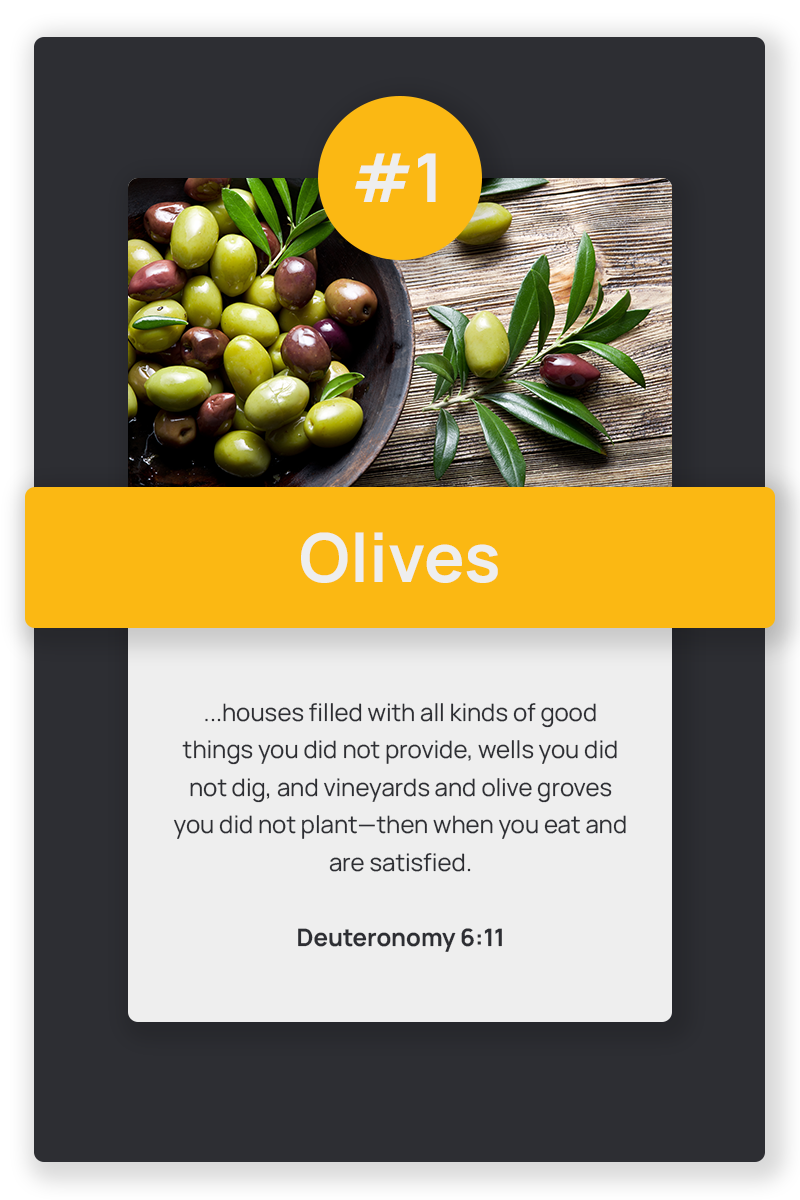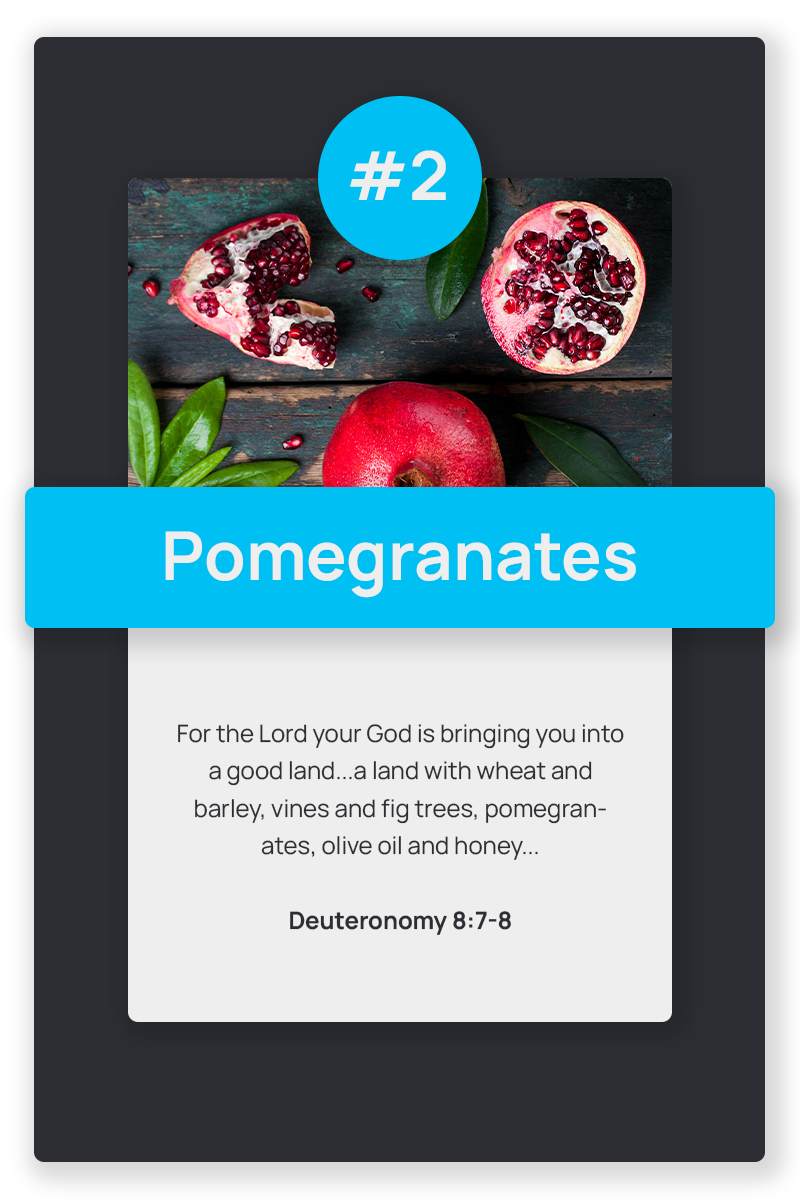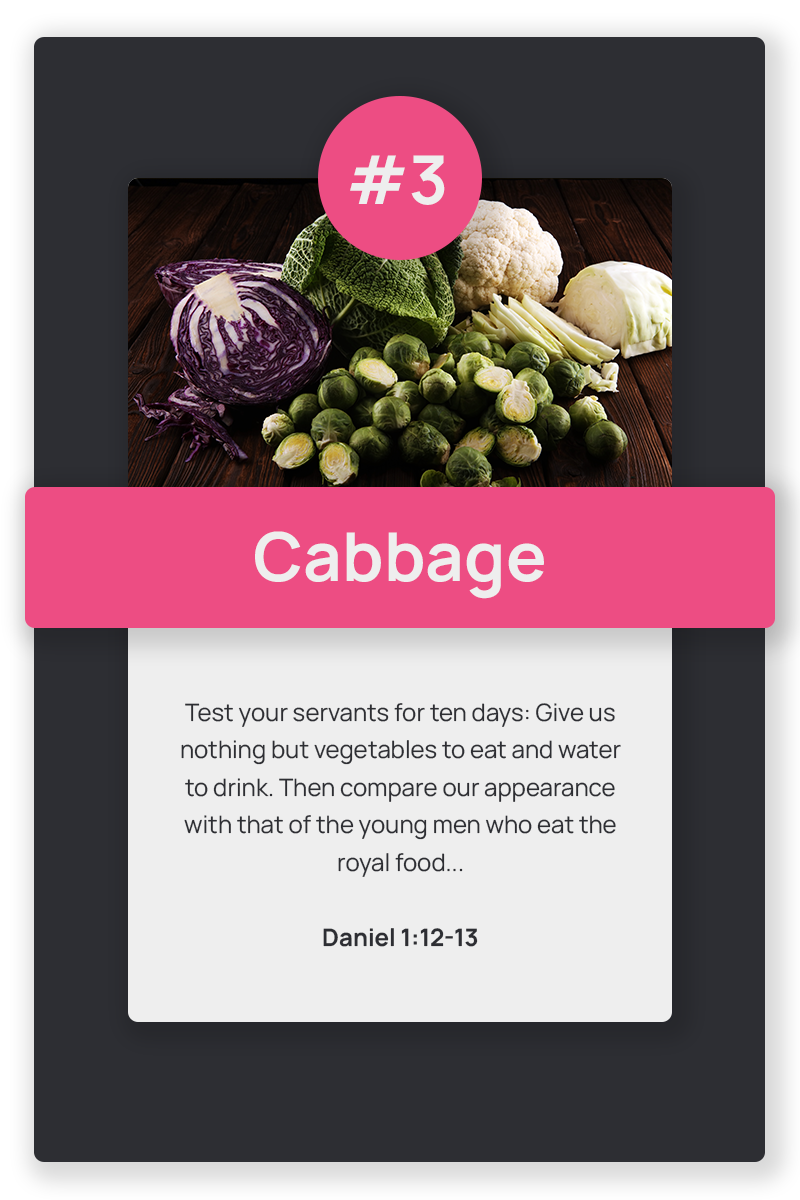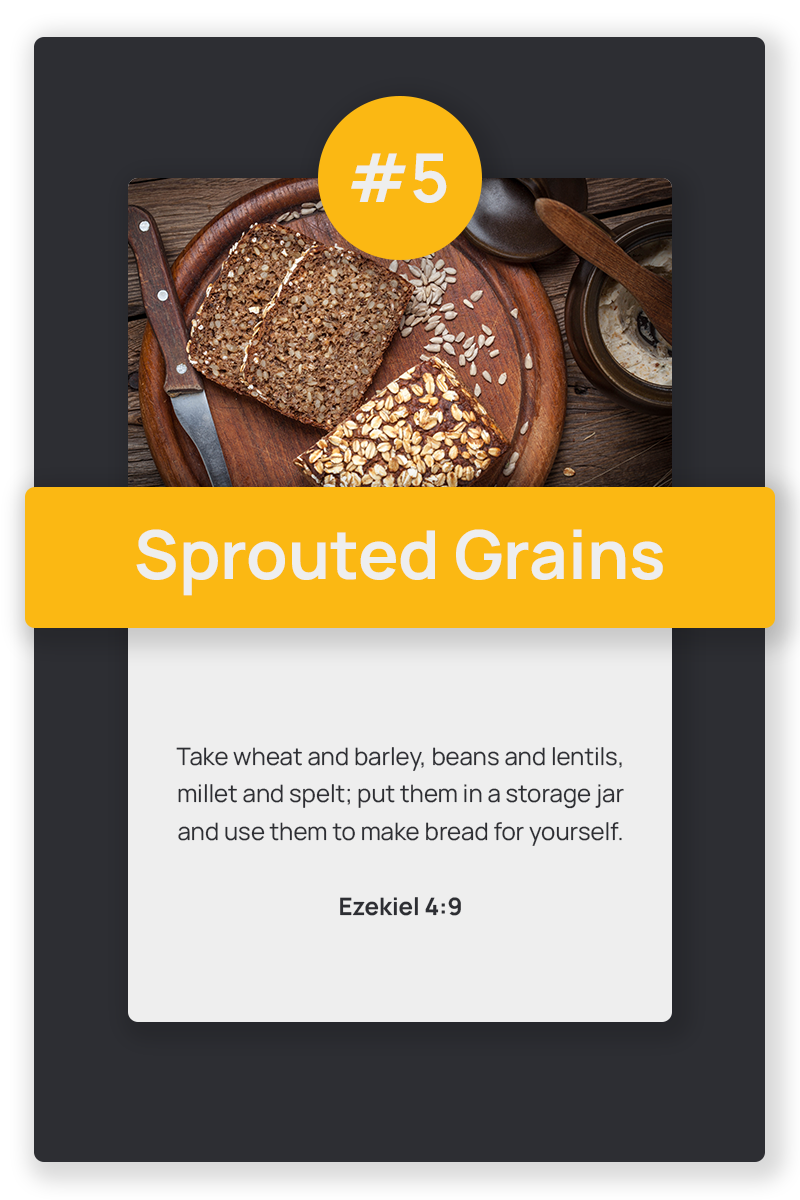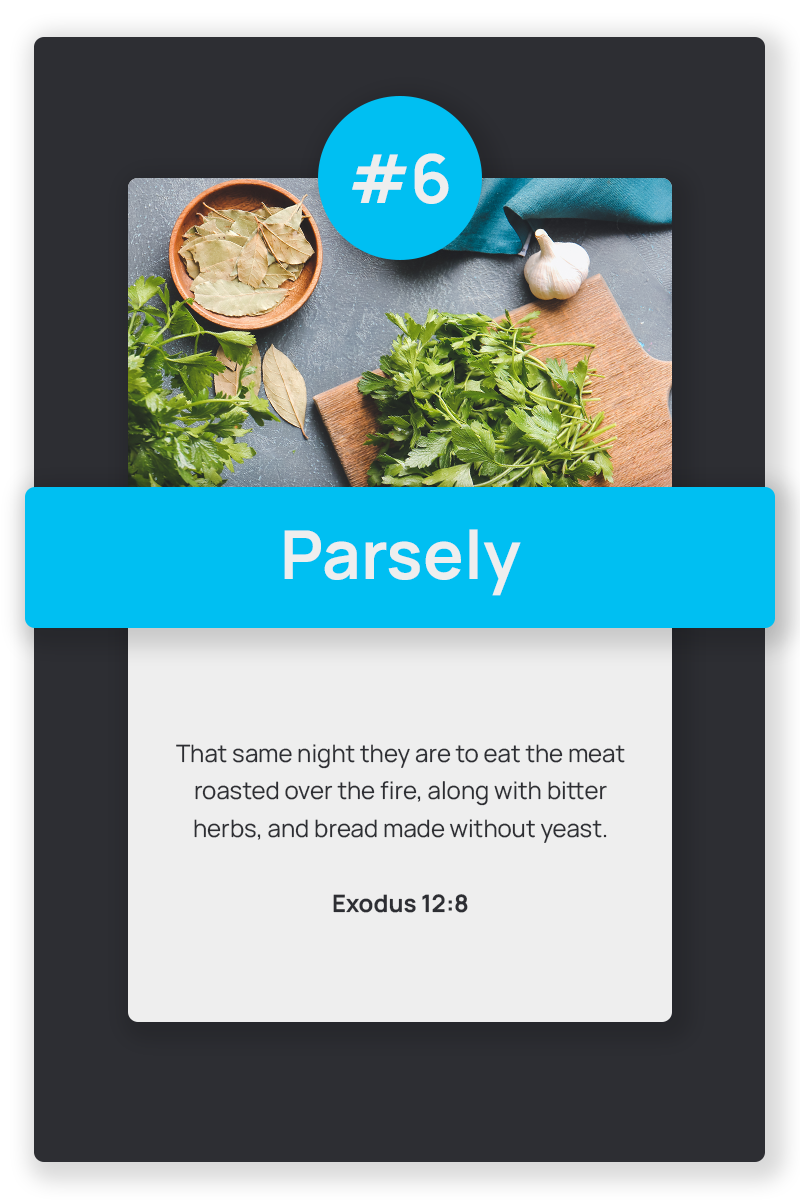An Intersection of Worlds
Eating right can increase your energy, balance your hormones and improve your mood. This can help fight the chemical warfare within your body in subtle, yet critical ways. Common nutrition advice like “eat foods that are in season” and “eat raw fruits and veggies” are great, but they only scratch the surface. Would you believe that the bible can help us in a practical way?
The bible often uses various foods as spiritual symbols, but what about their practical uses? All throughout the Bible, references are made to the medicinal properties of foods and herbs too. A “biblical diet” is filled with foods that promote recovery and so many other awesome health benefits. Here are eight foods found in the bible that can drastically change your body and mind.
#1
Olives
Believe it or not, olives are actually a fruit!
Throughout history, olives were used for lighting lamps and for creating soaps and cosmetics. They were even used as currency! Olive oil was so sacred to ancient cultures, it was even used to anoint kings and priests. Regular consumption of olives contributes to heart, brain, skin and joint health. They have even been linked to cancer and diabetes prevention. Needless to say, this sacred food has lived up to its ancient reputation.
#2
Pomegranates
The perfect balance between tart and sweet
Tasty and messy, pomegranates are recently gaining ground in the American market. Several research studies have shown that pomegranates contain strong anti-inflammatory, anti-oxidant, anti-obesity and anti-tumor properties. Because of this, pomegranates are being as considered valid treatment options for chronic diseases such as cancer.
#3
Cabbage
The cabbage family stands out among all veggies when it comes to healthy eating.
This vegetable type includes foods like broccoli, cauliflower, brussel sprouts, kale and radishes. The cabbage family is rich in nutrients and fiber. According to the National Cancer Institute, they can help prevent cancer through their rich source of glucosinolates. Glucosinolates are broken down during digestion and may slow down or even reverse cancer cell growth.
#4
Flaxseeds
Some of the world’s greatest gifts come in the smallest packages.
Flaxseed is one of those gifts. Flaxseed was used during biblical times as a fiber to make linen. Research shows that flax seeds may be able to help fight against cancer, lung disease and heart disease. That’s a lot for such a tiny seed! Flaxseeds are fibrous and contain “good fats” called Omega-3 fatty acids. Add some ground flaxseed to foods like oatmeal, smoothies or yogurt for that added health benefit.
#5
Sprouted Grains
I can’t be the only one that fills up on breadsticks before my meal arrives at Olive Garden, right?
No? I knew it! What if I told you there was such a thing as “the perfect bread?” In the Book of Ezekiel, God gave the prophet Ezekiel a recipe for “sprouted grains.” Ezekiel bread is scientifically proven to create the “complete protein” with all essential amino acids. Weird, huh?
Ezekiel bread is healthier than other breads because the grains and legumes are soaked and sprouted. This makes them easier to digest. Harvesting “sprouted grains” happens after the young shoot digests a portion of its starch. Once the grain’s starch has been utilized, the level of vital nutrients are enhanced. Research studies have also suggested that iron and zinc actually become more “bioavailable” after sprouting.
#6
Parsley
When the bible talks about “bitter herbs,” most scholars believe it’s talking about the parsley family.
This plant type includes herbs like cilantro, coriander, parsnip, dill and even celery. This herbal family is not only used as a natural flavoring agent, but for many medicinal purposes. Parsley contains over twenty vitamins and minerals, including several crucial vitamins like vitamin A, vitamin C and potassium. This miracle plant has also been known to help lower both blood sugar and blood pressure.
#7
Lamb
Lamb is arguably the healthiest red meat on the planet.
The marble fat content of lamb is considerably lower than that of other meat. This contributes to heart health and helps prevent obesity. Lamb is rich in protein, vitamin B12, vitamin B6, zinc and other vital nutrients. Lambs are also the most revered animal in the bible. They were often eaten as a symbol of Jesus’s own sacrifice on the cross.
#8
Honey
Raw honey is loaded with key nutrients and contains disease-fighting antioxidants.
Honey also supports the growth of probiotics in the gastrointestinal tract. It’s a fantastic replacement for energy drinks for athletes and people needing a little boost. Honey is best when it’s locally sourced. Local honey will contain indigenous pollen species that can help with allergies. Raw honey works well as a healthy alternative for both cane sugar and maple syrup. Try it on your pancakes or in your coffee sometime and see how you like it! John the Baptist liked to dip locusts in honey, but I can’t say I recommend that…
